From 9/11, to intense fighting on the ground, and now full withdrawal of US-led forces, here’s what happened.
9/11
Al-Qaeda, led by Osama Bin Laden in Afghanistan, carries out the largest terror attack ever conducted on US soil.
Image copyright by Getty
Four commercial airliners are hijacked. Two are flown into the World Trade Centre in New York, which collapses. One hits the Pentagon building in Washington, and one crashes into a field in Pennsylvania. Nearly 3,000 people are killed.
First air strikes
A US-led coalition bombs Taliban and al-Qaeda facilities in Afghanistan. Targets include Kabul, Kandahar and Jalalabad. The Taliban refuse to hand over Bin Laden. Their air defences and small fleet of fighter aircraft are destroyed.
Fall of Kabul
The Northern Alliance, a group of anti-Taliban rebels backed by coalition forces, enters Kabul as the Taliban flee the city.
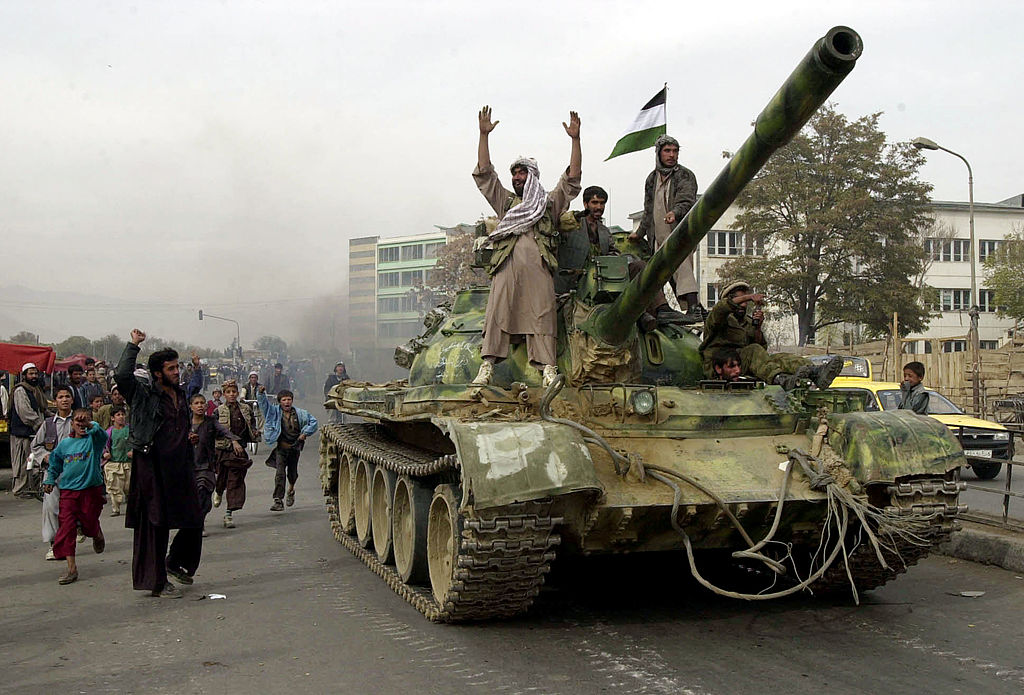
Image copyright by Getty
By the 13 November 2001, all Taliban have either fled or been neutralised. Other cities quickly fall.
New constitution
After protracted negotiations at a “loya jirga” or grand assembly, the new Afghan constitution is signed into law. The constitution paves the way for presidential elections in October 2004.
Hamid Karzai becomes president
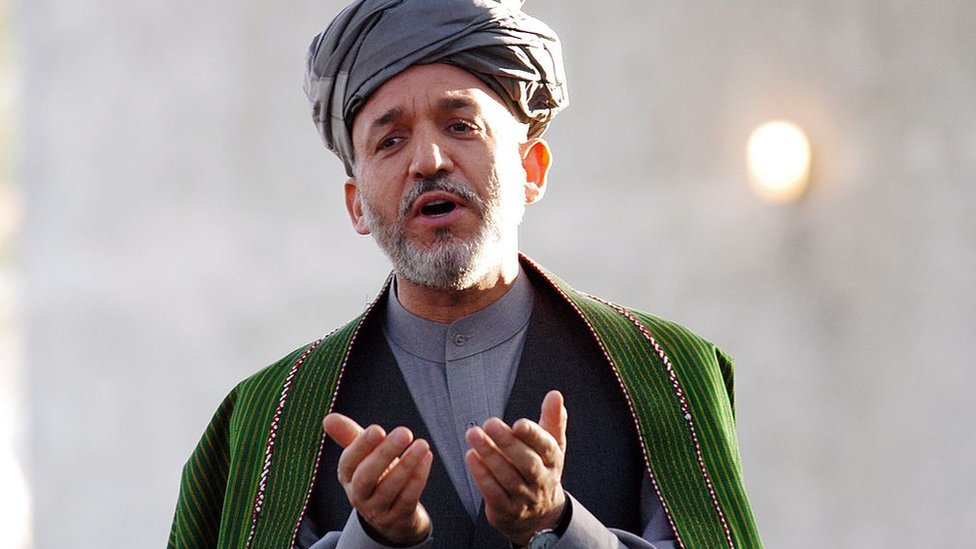
Image copyright by Getty
Hamid Karzai, the leader of the Popalzai Durrani tribe, becomes the first president under the new constitution. He serves two five-year terms as president.
UK troops deployed to Helmand
British troops arrive in Helmand province, a Taliban stronghold in the south of the country.
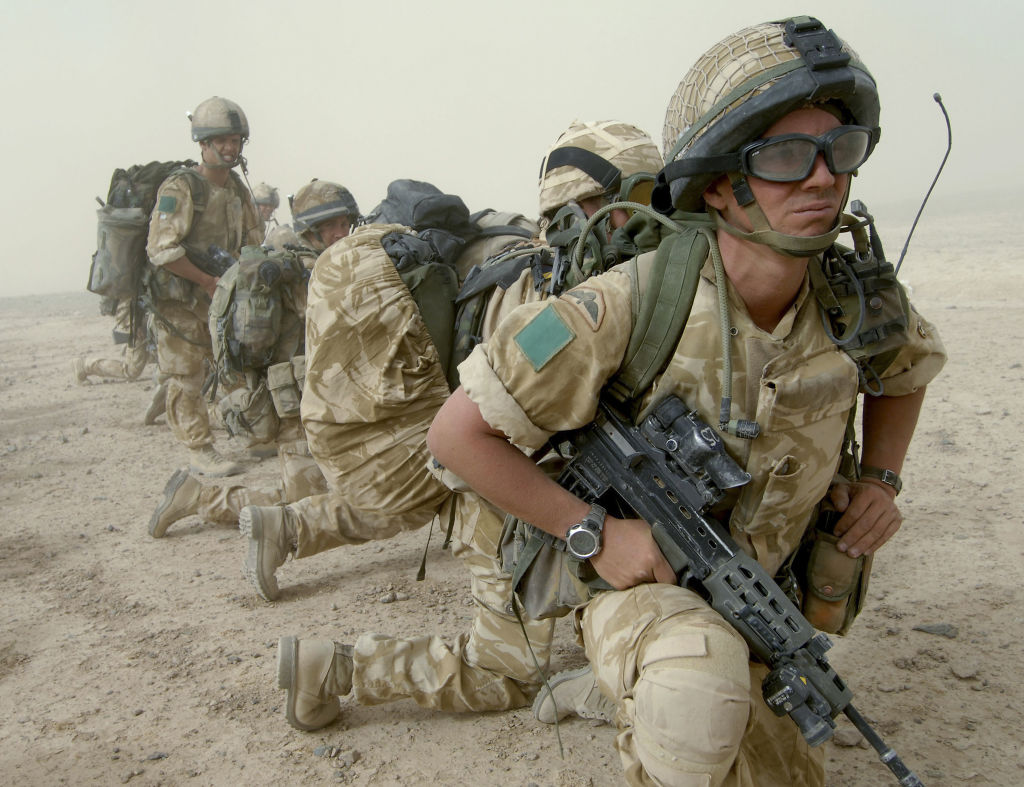
Image copyright by Getty
Their initial mission is to support reconstruction projects, but they are quickly drawn into combat operations. More than 450 British troops lose their lives in Afghanistan over the course of the conflict.
Obama’s surge
US President Barack Obama approves a major increase in the number of troops sent to Afghanistan. At their peak, they number about 140,000.
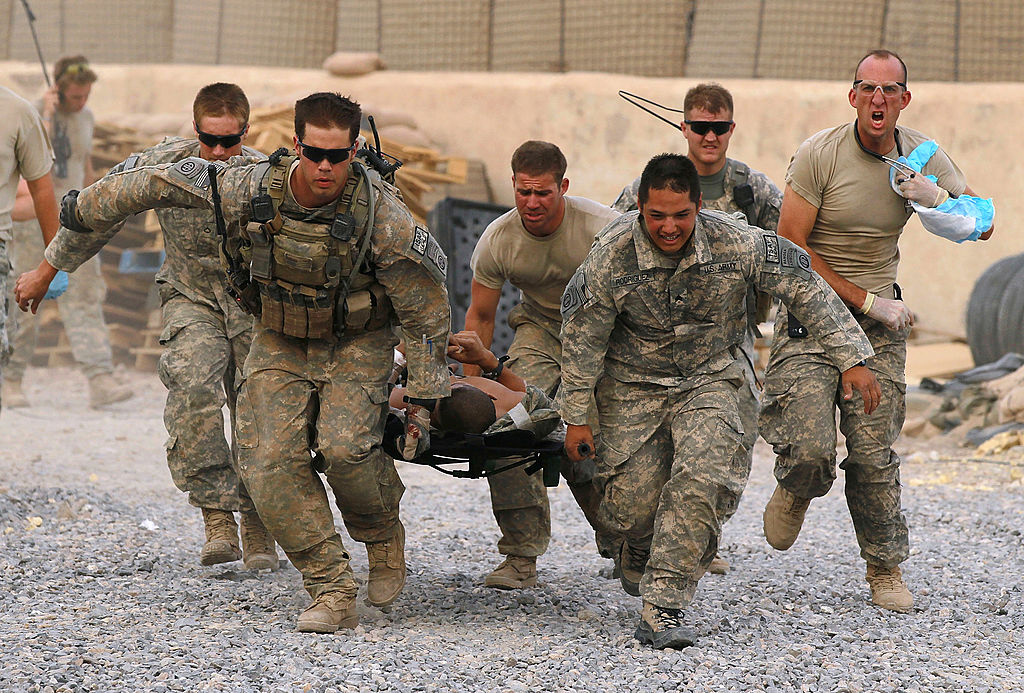
Image copyright by Getty
The so-called “surge” is modelled on US strategy in Iraq where US forces focussed on protecting the civilian population as well as killing insurgent fighters.
Osama Bin Laden killed
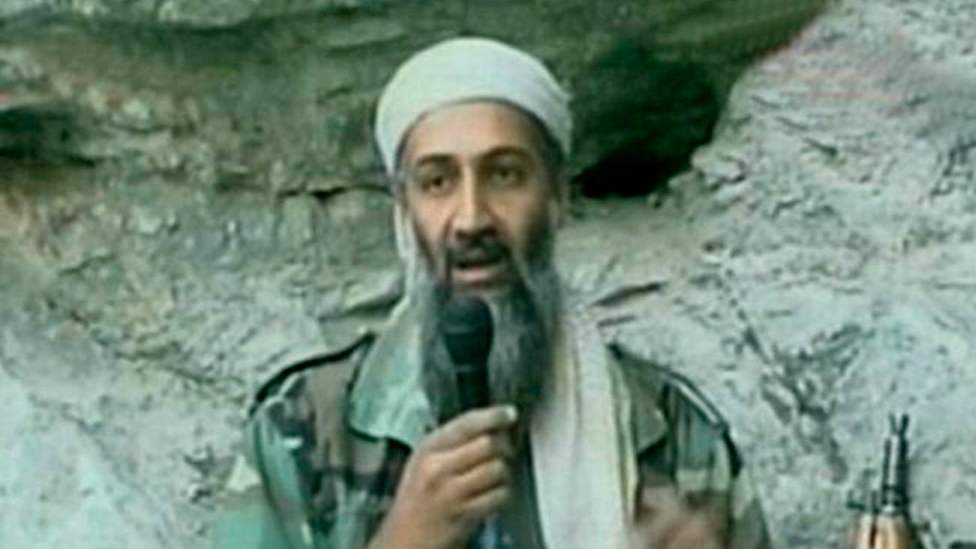
Image copyright by Getty
The leader of al-Qaeda is killed in an assault by US Navy Seals on a compound in Abbottabad in Pakistan. Bin Laden’s body is removed and buried at sea. The operation ends a 10-year hunt led by the CIA. The confirmation that Bin Laden had been living on Pakistani soil fuels accusations in the US that Pakistan is an unreliable ally in the war on terror.
Death of Mullah Omar
The founder of the Taliban, Mullah Mohammed Omar, dies. His death is kept secret for more than two years.
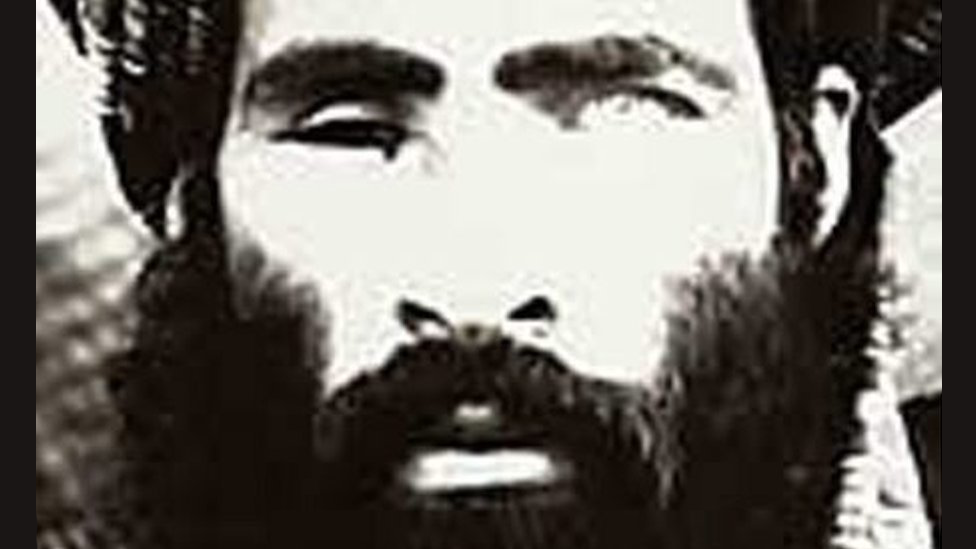
Image copyright by EPA
According to Afghan intelligence, Mullah Omar dies of health problems at a hospital in the Pakistani city of Karachi. Pakistan denies that he was in the country.
Nato ends combat operations
At a ceremony in Kabul, Nato ends its combat operations in Afghanistan. With the surge now over, the US withdraws thousands of troops. Most of those who remain focus on training and supporting the Afghan security forces.
Taliban resurgence
The Taliban launch a series of suicide attacks, car bombings and other assaults. The parliament building in Kabul, and the city of Kunduz are attacked. Islamic State militants begin operations in Afghanistan.
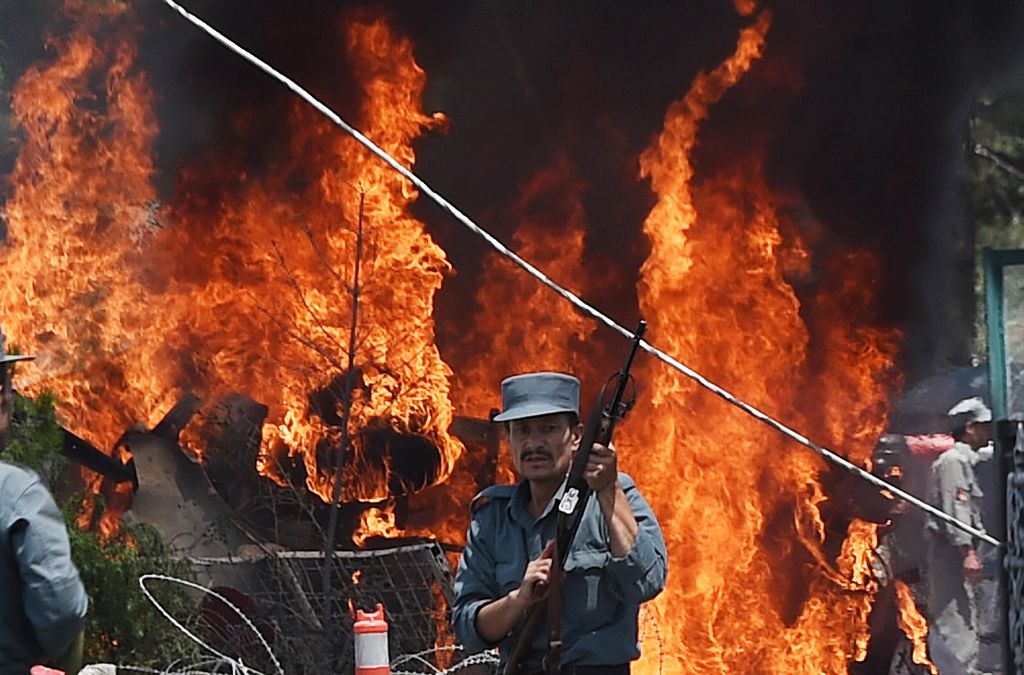
Image copyright by Getty
Death toll announcement
Afghan President Ashraf Ghani says more than 45,000 members of his country’s security forces have been killed since he became leader in 2014. The figure is far higher than previously thought.
US signs deal with Taliban
The US and the Taliban sign an “agreement for bringing peace” to Afghanistan, in Doha, Qatar. The US and Nato allies agree to withdraw all troops within 14 months if the militants uphold the deal.
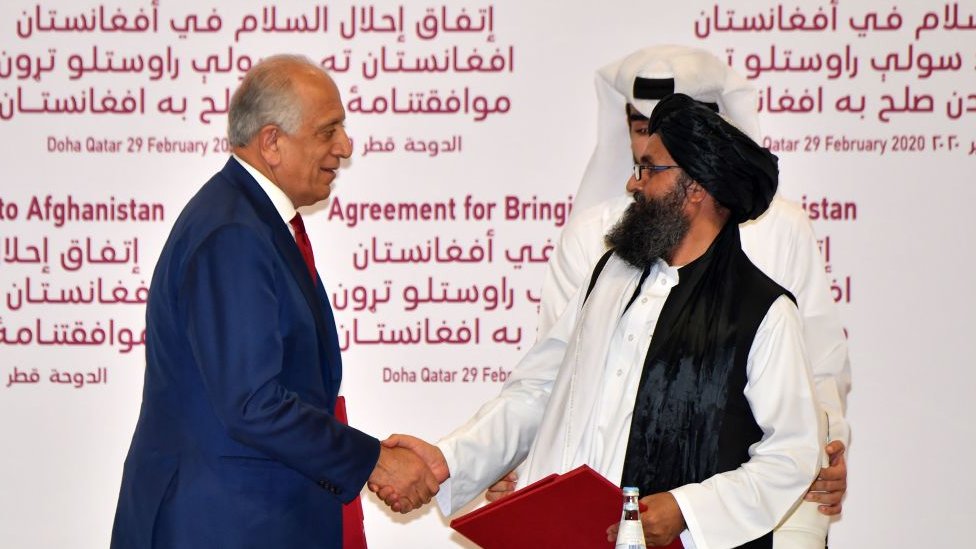
Image copyright by Getty
Date for final withdrawal
US forces are scheduled to withdraw from Afghanistan by 11 September 2021, exactly 20 years since 9/11. There are strong indications that the withdrawal may be complete before the official deadline.